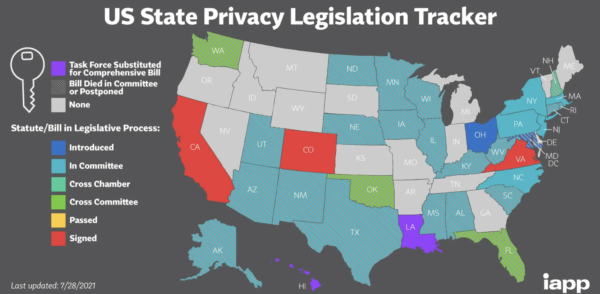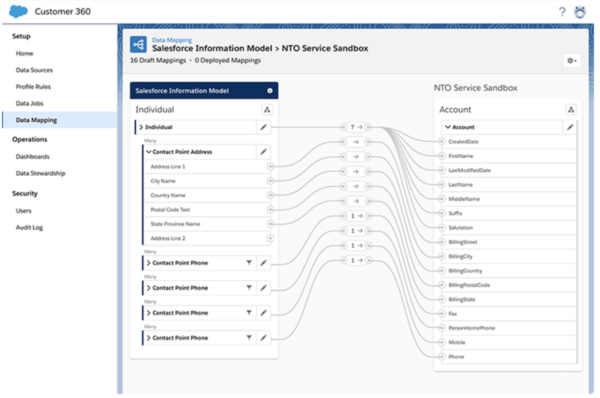The Ins and Outs of Data Governance in Salesforce
In the digital era, data has become a valuable asset. Not unlike a raw material resource, the data companies generate in the course of their operations can deliver value – but only if it is manipulated, managed, and maintained. Many companies – 41% – willing to invest in this process are finding that they’re doubling their chances of making improved, data-driven decisions. To share in their success, organizations need to develop and commit to plans for data governance in Salesforce.
Today, just 3% of companies meet industry-wide data quality standards. To aid you in your journey to enjoying the benefits of better data quality, this guide will help you gain a better understanding of data governance and its best practices in Salesforce.
What is Data Governance?
Data governance refers to the process of regulating the availability, accessibility, integrity, and security of data in corporate systems, based on internal data standards and policies that also control data usage. Effective data governance guarantees that data is consistent, reliable, and not improperly accessed. It has become more important as businesses confront new data privacy requirements while increasingly relying on data analytics to guide their operations and make better business decisions.
Data governance programs typically consist of:
- Governance team
- Steering committee that serves as the governing body
- Group of data stewards who ensure quality and fitness of purpose in the organization’s data assets
These roles collaborate to develop data governance standards and policies. Data stewards typically carry out implementation and enforcement methods. Along with the IT and data management teams, executives and other officials from an organization’s business operations also contribute.
Benefits of Data Governance
The practice of data governance exists to create value in an organization’s customer data in three important ways.
Reduce Costs of Bad Data and Inconsistencies
Enterprise-level data inherently contains multiple possibilities for redundant data that does not match. These duplicate records can introduce costly inefficiencies and degrade an organization’s capacity for predictive analytics. Bad data cost U.S. companies an estimated $3.1 trillion annually. Even when duplicate records have high levels of consistency, they can still affect the bottom line by bloating storage costs when multiple large redundancies are stored in an organization’s servers.
Improve Data Quality and Visibility for Predictive Analytics
Companies that invest in cleaning and maintaining their data are reaping the benefits of analytics rooting in high-quality data. Data governance is essential to developing the capacity for data-driven decisions at the executive level. Companies with good data governance exhibit at least three bottom-line advantages.
- 69% chance of improved strategy performance
- 8% revenue increase
- 10% overall cost reduction
Ensure Compliance with Data Privacy Regulations

While the U.S. does not have a single comprehensive data privacy legislation at the federal level – like the European Union’s General Data Protection Regulation (GDPR) – many industry-specific data privacy regulations exist, and laws also vary by state. The Health Insurance Portability and Accountability Act (HIPAA), the Fair Credit Reporting Act (FCRA), and half a dozen other regulatory acronyms have relevance for data governance.
Additionally, state laws apply in some cases and change frequently. As a result, it isn’t always easy or intuitive to know exactly what you can or can’t do with your customer data. Data governance programs can help your organization navigate this complex, changing landscape.
Data Governance in Salesforce: 4 Best Practices
Whether your organization already has a data governance plan in place for Salesforce operations or not, there are several best practices for the platform you can begin to implement at any time. Here’s a list of four practices to achieve better Salesforce data governance.
1. Assign Roles and Communicate Expectations
Data governance achieves better data quality and value by defining who’s responsible for specific data maintenance tasks. Once you assigned primary roles – governance team, steering committee, data stewards – you should circulate and regularly update your organization’s governance plan so that all team members are on the same page regarding data handling.
2. Take Stock of Your Existing Data and Identify Redundancies and Liabilities

If your organization uses multiple clouds, you almost certainly have unnecessary instances of the same data stored in multiple databases. Some amount of data redundancy is a feature rather than a bug as it protects against catastrophic data loss. Nevertheless, Salesforce clouds tend to accumulate excess instances of account and transactional data that serve no practical purpose and drive up storage costs.
You can use the data mapping feature of various clouds to match fields across your databases to identify redundancies to eliminate and also areas of database construction that may expose secure data to unauthorized access.
3. Migrate Data and Avoid Manual Rebuilds
Salesforce change sets can migrate customizations between Salesforce organizations. When you need to integrate data across organizations – including metadata – you don’t need to manually rebuild the database. Change sets and other Salesforce data deployment tools in the customer data platform can handle these migration tasks automatically.
4. Maintain an Audit Trail for All Data Changes
Maintaining audit trails for data changes saves time and effort when compliance or troubleshooting issues arise. Salesforce contains a feature – Setup Audit Trail – that allows you to monitor all organizational data changes.
This feature also eases data governance implementation in organizations with multiple administrators. Setup Audit Trail will keep an exhaustive past six months’ record of all data changes with relevant details such as when changes occurred, who made the changes, and what was changed.
Salesforce Technological Expertise with Rainmaker
Rainmaker’s team of Salesforce experts specializes in applying technological expertise to help you get the most out of the platform. With 18+ years’ experience across clouds and applications, Rainmaker can fine-tune your Salesforce experience.
To make an appointment with a team member, contact Rainmaker today.






